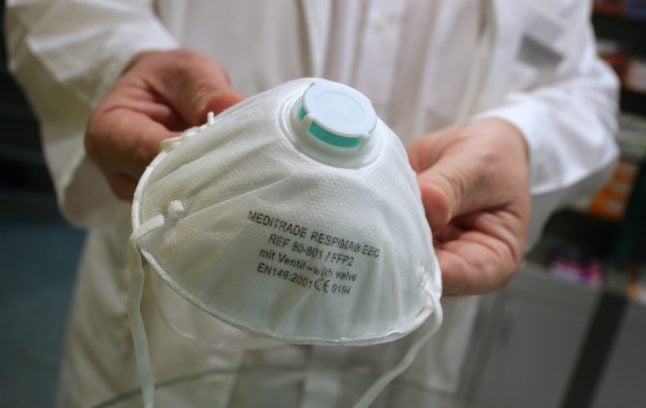“The basic stock of protective equipment available to office-based colleagues in their practices will not be sufficient nationwide if the number of suspected cases increases,” said Andreas Gassen, head of the National Association of Statutory Health Insurance Physicians (KBV). “And everything points to that.”
He said that talks were therefore being held with Germany’s Health Ministry, and all those involved, in order to find a rapid solution and to provide protective clothing and materials, such as respiratory masks, where it was needed.
“It must be clear how doctors can get the necessary material,” Gassen said. This is subject to constant coordination.
Gassen added: “We are taking the situation seriously. But there's still no reason to panic.”
It was to be expected that the number of confirmed cases in Germany would increase, and that they will continue to grow, health professionals recognise.
“What is important, however, is that many infected people have no symptoms at all, most of them have only flu-like symptoms, only a few fall seriously ill,” said Gassen.
READ ALSO: VIDEO: Five key questions about the coronavirus answered
Doctors in Germany are well organised
It should also not be forgotten that regardless of the coronavirus, many people are currently suffering from a cold or flu-like infection.
When asked whether practices across the Bundesrepublik could cope with the situation, Gassen said: “A resounding yes.”
He said that GPs were well organised and positioned. As far as tests for the new virus are concerned, an agreement on the assumption of costs was quickly reached with the Central Association of Statutory Health Insurance Organisations.
“If a doctor deems such a test to be appropriate from a medical point of view, then he should carry it out,” said Gassen.
READ ALSO: Merkel avoids handshakes amid rising number of virus cases
The test is a throat swab that is analysed in a laboratory. “There are no known capacity problems,” added Gassen.
He explained that GPs understand patients' concerns but urged for people to be aware of the most up-to-date information and phone the doctor instead of visiting them.
“You can support us,” he said. “If you are worried that you might have contracted the disease because you suffer from cold symptoms and have been in a region where coronavirus cases have occurred, first contact a doctor or on-call doctor's office by telephone – this is important.”
It is also possible to dial the nationwide medical on-call number: 116-117. If necessary, further action or clarification will then be carried out.
READ ALSO: MAPS: The parts of Germany most affected by coronavirus
Vocabulary
Protective equipment – (die) Schutzausrüstung
Respiratory mask – (die) Atemschutzmaske
GPs see themselves as prepared – die Praxisärzte sehen sich gewappnet
Not be sufficient/enough – nicht ausreichen
Throat swab (der) Rachenabstrich
No reason to panic – kein Grund zur Panik
We're aiming to help our readers improve their German by translating vocabulary from some of our news stories. Did you find this article useful? Let us know.



 Please whitelist us to continue reading.
Please whitelist us to continue reading.
Member comments